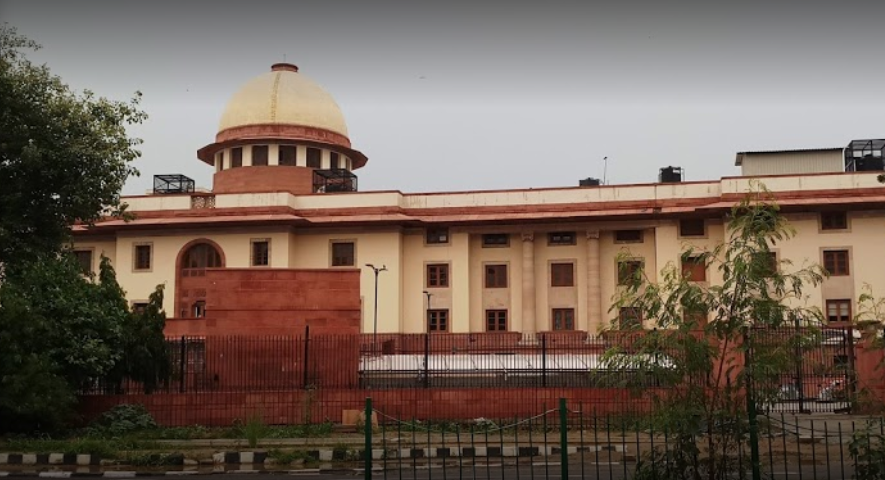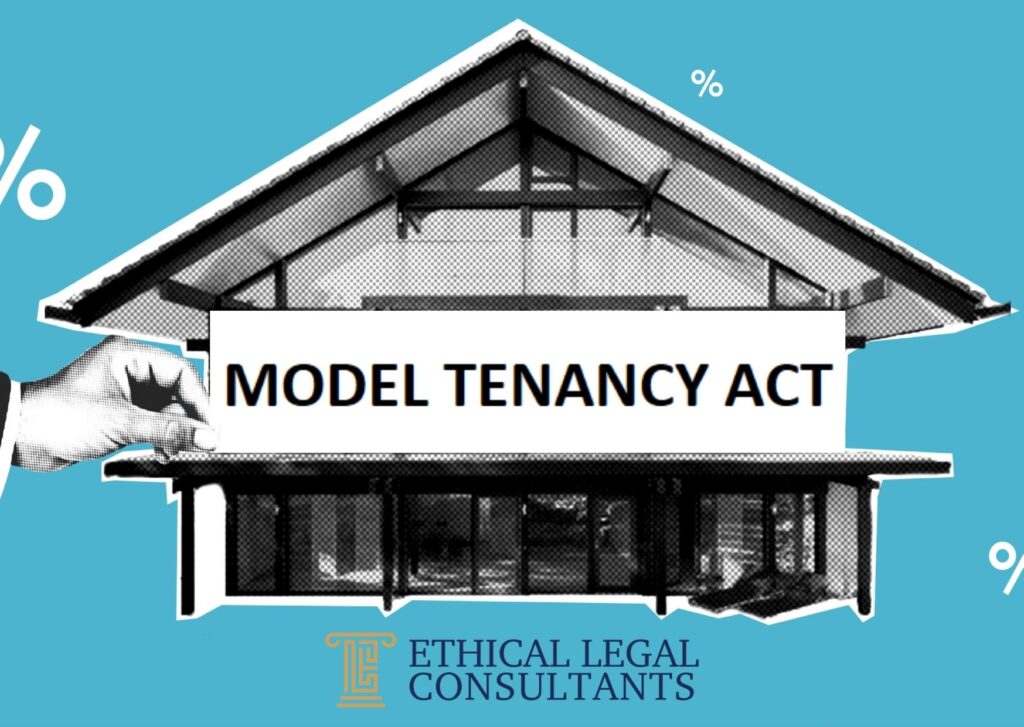
The Kerala High Court urged the State and Central governments to frame guidelines or laws for granting licenses to individuals interested in protecting stray dogs.
The Court recently opined that human lives should be given preference over the lives of stray dogs.
In a recent case, Justice PV Kunhikrishnan pointed out that the threat of stray dogs affects daily life of citizens with children and the elderly being the most affected. School children are afraid to go alone to their school because of the apprehension that they will be attacked by stray dogs. It is a habit for several citizens to go for a morning walk. Morning walk is also not possible today in certain areas because of the apprehension of attacks from stray dogs. If any action is taken against the stray dogs, the dog lovers will come and fight for them. But I am of the considered opinion that human beings should be given more preference than stray dogs, the Court opined.
The Court recognised that increasing instances of human-dog conflict in the State have been leading to law and order problems but that commenting on it often gets painted as inhumane.
“Barking dogs seldom bite” is an English proverb. But in reality, it may not be correct in our state at least… If we read the newspapers, we can see regular news in which there is an attack from stray dogs towards small children, youngsters and even old people, the Court said.
However, the Court made it clear that attacks on stray dogs must also be prevented and opined that local self-government authorities should grant licenses in accordance with the Animal Birth Control Rules, 2023 (ABC Rules) to animal lovers who come forward to save the dogs.
Court also stated in its judgment that while giving licence, the local authorities can impose conditions in tune with the provisions in ABC Rules 2023. This should be in addition to the duties of Local Self Government Institutions to protect the stray dogs as per ABC Rules. The court was of the considered opinion that the dog lovers need not write and speak for the dogs in print and visual media, but they should come forward to protect these dogs if there is bonafides in their words along with the Local Self Government Institutions.
It also urged the State and Central governments to frame guidelines or laws for granting licenses to individuals interested in protecting stray dogs.
The judgment was rendered on two petitions moved by residents of Muzhthadam ward in Kannur.
The residents claimed that they were severely inconvenienced due to the activities of another resident, one Rajeev Krishnan who cared for injured stray dogs in his house. They alleged that over time, the number of strays increased with Krishnan’s house and the surrounding areas becoming extremely unhygienic and unsafe due to the presence of dogs.
The residents submitted that even though an exclusive meeting held at the district collectorate had come up with a plan to address the issue, Krishnan refused to implement the suggestions.
This prompted them to move the High Court seeking orders to ensure that the plan is implemented and the issues posed by the stray dogs are addressed.
Krishnan countered the petition contending that he has been maintaining the dogs within his property and that since they are all vaccinated and sterilized, they pose no threat to human beings. He submitted that there have been no instances of dog bites by any of the dogs maintained by him and assured the Court that he would ensure that the neighbours face no inconvenience from all nine dogs that live in his property at present. The Court said that Krishnan ought to approach the Corporation of Kannur to get a license to maintain the dogs. It directed the Corporation to consider his application and issue a license to him after imposing strict conditions in tune with the Prevention of Cruelty to Animals Act, 1960 and ABC Rules, 2023.
]]>
Non-payment of money or breach of contract are civil wrongs that differ from criminal offences, a bench of Justices Sanjiv Khanna and Dipankar Datta reiterated.
A bench of Justices Sanjiv Khanna and Dipankar Datta explained that there is a clear distinction between a breach of contract and criminal offences.
Non-payment of money or breach of contract are civil wrongs that differ from criminal offences, the Court underscored.
The police is to investigate the allegations which discloses a criminal act. Police does not have the power and authority to recover money or act as a civil court for recovery of money, the Court observed.
The observations came while quashing a criminal complaint and subsequent proceedings against an accused. Police do not have the authority to recover money or act as a civil court for recovery of money after civil proceedings fail, the Supreme Court recently said in the case Lalit Chaturvedi and others vs State of Uttar Pradesh and another. The charge sheet had alleged criminal breach of trust and criminal intimidation, apart from cheating, after a contract between the accused and the complainant fell through.
The High Court refused to set aside the criminal case leading to the instant appeal before the Apex court.
The Apex court at the outset lamented that its judgments regarding differentiating criminal and civil offences were getting overlooked instead of being applied and enforced. The lack of authentic efforts and biased and personal interests leads to such acts.
“It is one thing to say that a case has been made out for trial and criminal proceedings should not be quashed, but another thing to say that a person must undergo a criminal trial despite the fact that no offence has been made out in the complaint,” it stated. The charge sheet clearly shows that no criminal case is made out against the instant accused, it added.
“No details and particulars are mentioned. In this case entrustment is missing, in fact it is not even alleged. It is a case of sale of goods.” The top court noted that the criminal case had been lodged only with an intent to activate police machinery for recovery of money. Initiation of the criminal process for such oblique purposes is bad in law, it underscored. It, thus, set aside the High Court order and quashed all criminal proceedings in the matter.
.
.
.
]]>
DCDRC, Ernakulam, Kerala, while considering the matter where an ex-student of VLCC Institute who had enrolled in 2 courses, cancelled her admission due to delays in classes and her weak health, and had claimed a refund from the institute, noted that the complainant is a ‘consumer’ under Consumer Protection Act, 2019 based on the fee receipts issued by the opposite party to the complainant. It was noted that the opposite parties failed to deliver on their promise by not conducting the courses as per the agreed terms.
The Commission also noted that instead of providing refund to the complainant, the opposite parties suggested purchasing VLCC products of equivalent value to the fees paid. The Commission pointed out that VLCC institute, which runs on its own without any control from a university or particular educational rules, is indeed a type of coaching centre. Therefore, it comes under the jurisdiction of DCDRC.
DCDRC expressed that “In the field of education, while many coaching institutions offer valuable services to prepare students for higher education, there unfortunately exists a presence of unscrupulous coaching institutions engaging in unethical practices, exploiting students and their families. These institutions should not have the right to retain the fees of students who choose to leave a course midway due to dissatisfaction with the services provided. It is essential to ensure fairness and prevent these institutions from imposing unfair terms and conditions. Protecting consumers, especially in the education sector, is of utmost importance to guarantee that students and parents are treated with the respect and honesty they deserve”.
The complainant, on January 18, 2021, enrolled in a six-month “Diploma in Cosmetology” course offered by the second opposite party, and she paid the full course fee of Rs. 1,17,329/- on January 19, 2021. She attended physical classes regularly until she tested positive for COVID-19 on April 6, 2021. Following her diagnosis, she continued her education through online classes. However, by the end of March 2021, the opposite parties ceased offering even online classes, citing a lack of faculty due to COVID-19. The course was originally supposed to conclude on July 18, 2021.
During this period, the Regional Head, Rajalakshmi, persuaded the complainant to enroll in two additional courses, namely “Advanced Diploma in Laser Aesthetics” and “Diploma in Beauty Culture.” The total fee of Rs. 1,62,000/- was collected on March 9, 2021, for these two courses. Despite collecting the fees, the opposite parties did not provide a single class for these courses. Consequently, the complainant decided to cancel her enrolment in these two courses.
The complainant decided to cancel her admission due to delays in classes and her weak health. She requested a refund from the institution but faced delays and false information. The institution offered alternatives, but the complainant refused due to incomplete classes within the prescribed time. The suggestion of the institute to adjust the course fees against the enrolment of a relative or sibling is not only unfair but also contrary to consumer protection principles. NCDRC even stated that fees paid by the complainant should not be rendered non-refundable in such a manner. Such practices are deemed unconscionable and voidable. The complainant, thus alleged unfair trade practices, sought a refund of Rs.2,79,329/ and Rs.2,00,000/ as compensation for mental agony, and the entire cost of proceedings. The National Consumer Dispute Redressal Commission found VLCC to be liable for negligence and serious deficiency in service and unfair trade practices and ascertained the liability of VLCC by directing them to refund Rs.2,79,329 to the complainant for the course fees paid and to pay Rs.50,000 as compensation for the mental agony, inconvenience, physical hardships, and deficiency in service caused by their actions and Unfair Trade Practices and also pay Rs.10,000 towards cost of proceedings.
.
.
.
.
]]>
The first condition of Mutual Consent Divorce is that the husband and wife is not living together since one year.
Following are the steps which should be followed for Mutual consent Divorce:-
- Firstly, a divorce lawyer need to be finalised.
- The divorce lawyer will prepare a mutual consent settlement deed or Memorandum of Understanding stating the terms and conditions agreed between the Husband and Wife willing to proceed for Mutual Consent divorce. That should briefly mention;
- One time Alimony involved or monthly Maintenance committed by the Husband, if any,
- Custody of children, if any, and the details of their visitation rights,
- Any other terms or conditions finalised between the husband and wife,
- The lawyer will prepare a draft Petition for Divorce in which it is mentioned that the divorce is being filed with mutual consent.
- The draft petition once gets finalised, need to be filed in the District Family Court.
- On filing the petition, First Motion statement of both the parties will be recorded in the Family Court.
- As per the legal procedure, Family court provides 6 months of time to both Husband and wife to rethink about their decision and to revive their relationship, if possible.
- After the completion of 6 months statuary cooling off period, Husband and wife may approach the Family Court for proceedings of Second Motion statements, if they wants to pursue their decision further and agrees to take Divorce with mutual consent.
- Second Motion statement of both the parties will be recorded in the Family Court and the decree of divorce will be granted to the couple seeking divorce.
Mutual Consent Divorce is the easiest way to get divorce from your spouse. In some special circumstances, the Family Court allows to waive off the mandatory cooling off period of six months and may grant the Decree of Divorce within a month or two after the proceedings of the first motion of the mutual divorce.
]]>
The Kerala High Court recently opined that the collection of parking fees by Lulu International shopping mall was not appropriate while perusing a couple of pleas that the shopping mall collecting parking fees from its customers was illegal.
The Court directed the Municipality to file a statement on its definite stand whether a parking fee can be collected for a parking space mandatory under Building Rules.
It was also observed that further collection of parking fees by lulu was subject to the result of this writ petition. However, it was clarified that in the meanwhile, they can collect such fee at their risk.
The first petition was moved by a social worker Bosco Louis who appeared as a party in person.
Another petition was moved by film director Pauly Vadakkan after he was charged Rs. 20 as parking fees when he visited the mall on December 2. Vadakkan had alleged that the mall staff closed the exit gates and threatened him when he initially refused to pay the amount.
It was contended that collecting parking fees was a blatant violation of the Kerala Municipality Act and Kerala Municipality Building Rules 1994 since as per the rules, the mall is a commercial complex and the place earmarked in the approved building plan for parking cannot be converted into a pay & park facility. If any conversion is made, that is a fraud on the statute and unsustainable in the eye of the law, the petitioner had submitted.
The petition contended that parking fees were being collected by the mall since 2010 and that this had to be recovered by the government. Accordingly, the plea has sought a declaration that collection of parking fees by the mall was illegal apart from a refund of the Rs. 20 collected from the petitioner.
In 2019, Delhi high court sought the stand of the South Delhi Municipal Corporation (SDMC) on a plea alleging that it had failed to check some city malls from charging illegal parking fees. The petition argued that in the Master Plan for Delhi, 2021, it was clarified that hospitals and malls in the city could not levy any parking charges from visitors, but SDMC only issued notices to a few malls and private hospitals for violating the master plan adding that “such notices were nothing but an eyewash as no action was taken against such erring malls and hospitals”. Puri’s plea said that malls in Saket and Vasant Kunj, including Select City and Ambience, have regularly flouted SDMC circulars with the civic agency hardly taking any action. Last year, disposing of Puri’s plea an HC bench had taken note of SDMC’s claim that “parking space in the commercial complexes/malls/hospitals has to be utilised free of any charge and cannot be put to commercial use by levying parking fees for the same”.
In the year 2019, Gujarat High Court ruled that malls and multiplexes should not collect parking fees as they are under a statutory obligation to provide car parking space. Malls, multiplexes, shopping establishments etc., have to provide parking to the customers without collecting any fee from them. The court reached the conclusion based on the interpretation of provisions in Gujarat building and town planning laws.
Subsequently, the Supreme Court, on 15 October 2019, permitted all malls and multiplexes to take “reasonable” parking fees from visitors after providing them free parking for one hour.
Last year, the Karnataka High Court refused to entertain a plea seeking free car parking spaces in malls and multiplexes. “Somebody incurs a cost for maintaining the parking space at a cinema hall. How can it be free?”, the Karnataka High Court had orally observed, after which the petitioner chose to withdraw the petition.
In totality, the question still remains ambiguous – MALLS CAN COLLECT CAR PARKING FEE??
.
.
.
.
.
BEST LAWYER
LAW FIRM
]]>
Delhi High Court, in
the suit for possession filed by the Mother in law, has observed that the
mother in law being the owner of the property is not barred from
claiming eviction against her daughter in law where the residence is a
shared household.
The Court granted a decree of possession in
favour of mother in law and against the daughter in law and her mother,
while granting them three months’ time to vacate the premises.
In the instant case, suit was filed by the mother in law against the daughter in law and her mother. The son had expired on 29th September, 2020 while the daughter in law was living in the shared household since her marriage on 27th August, 2014.
Daughter in law claimed
that the mother in law had only a life interest in the suit property, further
stating that the mother in law herself executed a registered Will dated 16th
December, 2019 acknowledging that the daughter in law had been residing
in the shared household along with her husband therefore entrusted the
property in equal shares to her daughter and her son.
The Court distinguished that even though the
mother of daughter in law had come to reside with her daughter in order
to comfort her, she had no right to continue to stay in the suit premises, once
the mother in law had expressed her desire that she should leave.
The Court was of the view that the mother of daughter in law had no right to either question the title of the mother in law, or assert the right to residence in the suit premises as she had no such rights to remain in the premises.
Regarding title of the property, daughter in law had made two conflicting statements in the court:
- That the mother in law executed a will bequeathing her property, and,
- That the mother in law had only a life interest in the suit property.
It was also the case of the defendants that as the suit property was shared household of the daughter in law, the suit itself could not be instituted. However, mother in law had argued that according to the judgment of the Supreme Court, a civil suit for possession is in consonance with the provisions of sec. 17 of the Domestic Violence Act.
The Court iterated that the mere fact that premises take on the nature of shared household would not be a complete defence to a suit for possession filed by the owner of the property, being the in-laws of the aggrieved person, nor is such a suit barred.
“The protection under the DV Act assuring the residence of the aggrieved person in the shared household does not vest any proprietary or indefeasible right on the aggrieved person,” the Court observed.
“Nor does the right of residence allowed to aggrieved person extend to her insisting on the right of residence in a particular premises. Section 19 of the DV Act provides for an alternate accommodation being given to the aggrieved person of the same level in certain circumstances. Thus, it is clear that even where a residence is clearly a shared household, it does not bar the owner, the plaintiff herein, from claiming eviction against her daughter-in-law, if the circumstances call for it.” the court explained.
The Court added that by inducting her mother as well as her sister, the daughter in law had made an attempt to assert rights in respect of the suit property, which is clearly causing distress to the mother in law. Accordingly, the Court ordered that “The defendants are granted three months’ time to vacate the premises, subject to Covid-19 conditions, in which event, they can move the court for further time to vacate.”
.
.

This can be a traumatizing experience for any kid and can actually affect them psychologically. Most often couples fighting for divorce forget about what’s best for the child and take on single parenting in rigidity against their spouse. An adverse divorce brings about bitterness, publicly exploiting the emotions of parents as well as the child, leaving the child hurt and confused. Children are the primary victims of matrimonial disputes and custody claims. When spouses are at loggerheads, fight for ‘custody’ of the children begins. The Indian law generally talks about exclusive custody of children either by father or mother, depending upon the age of the children and other circumstances. Matrimonial feud denies children the necessary care, affection and protection. In a troubled home, their emotional, ethical and intellectual growth get stalled.
Divorced couples should take up joint custody of the child, putting aside their differences for the sake of the upbringing of the child. Joint legal custody is most ideal for parents who have already demonstrated a willingness to work with one another in making key decisions for their child. It’s also best when neither parent is holding a grudge against the other or refusing to communicate – which happens, unfortunately.
Currently, most courts hearing divorce cases end up granting custody of the child to the mother, especially if it is a girl. The father stands a better chance of getting custody if it is a boy and can prove to the court that the mother is incapable of looking after the child. Granting custody to one parent may not be the best idea as it may not go well with the child who might miss out on the emotional security that the other parent provided. Non-custodial parents ultimately end up getting visitation rights. This also deprives that parent of playing an effective parental role. Child psychologists say that alienating a child from one parent may start losing bond with the other parent and also affect his mental health, academic performance and such insecure kids are more prone to going on the negative side.
There is a need for a law to be developed where children are able to take shelter under a joint parenting system so that they can live with both the parents at different periods of time and feel more secure and complete. Often wide gaps in financial status and social standing of both parents start influencing the child’s preference towards more comfortable position. Usually fathers are earning and have free-hand in expenses while non-working mothers are left with child support for the childcare, which is not enough to maintain the previous lifestyle. In such cases, what both the parents can do is to co-operate with each other in fulfilling the child’s needs. Shared parenting is often costly since it involves providing two homes rather than one for a child.
Visitation rights must ensure that a child has frequent and continuing contact with both parents, when appropriate, and also with extended family and friends; and both parents have equal opportunities to spend quality time with the child, including during holidays and vacations.
While divorce is ugly, co-parenting has its own perks, for you as well as your kid hence why not enjoy it to create a healthy bond with your ex and make your child not feel family deprived. Co-parenting can be a demanding task after divorce, especially when you settled down and start entertaining personal needs. Acceptance, forgiveness and healthy respect for the other parent are the key to successful co-parenting after divorce.
Shared parenting exist in a number of countries around the world including the US, UK, Australia, Netherlands and South Africa. With divorce rates on the rise in India, it’s high time our lawmakers give serious thought to amending the Hindu Minority and Guardianship Act to diminish the trauma that children of estranged parents undergo during the divorce proceedings and the custodial battle. The court could consider appointing one trained child psychologist or clinical psychologist in every family court. This will help relieve the trauma faced by children during custodial litigation.
The Law Commission of India in its 257th report, titled Reforms in Guardianship and Custody Laws in India’, had recommended amendments in the Guardians and Wards Act, 1890 and the Hindu Minority and Guardianship Act, 1956 so as to bring these statutes in tune with the modern social considerations.
In a progressive move, the Supreme Court has asked the centre to respond to the issue of shared parenting of a child in cases of separated or divorced parents. The Central Government has invited comments from state governments on whether new legislation is needed to be framed to facilitate joint custody of children in a divorced family and is in process of seeking the states views on the subject of shared parenting.

The husband mentioned in his petition that he met with a car accident in 2009, after which his wife nursed him back to health. The following year they had their first child. However, the same year in 2010, he lost his job due to the recession and started suffering from back and shoulder pain and a skin allergy called ‘ragweed allergy’. The couple then decided to return to India.
A month after their return to India, husband claimed that his wife left for her parent’s home and subsequently left for Canada along with their son. The husband said he began job hunting in India, hoping his wife would return but in vain.
The husband then approached the court for restitution of conjugal rights but his wife failed to appear in the earlier proceedings. Eventually, he filed for divorce petition on the grounds of Cruelty and Desertion and the divorce case was decided ex-parte and dismissed. The Family Court judge observed that the husband’s pleadings and evidence were quite vague.
The petition was uncontested even in the High Court. But the bench still refused to grant the husband relief.
A division bench of Justices Ujjwal Bhuyan and Prithviraj Chavan refused to entertain the husband’s appeal against a Family Court’s order dismissing his petition for divorce under section 13 (1)(ia) (cruelty) and 13(1)(ib) (desertion) of the Hindu Marriage Act 1955.
The Bench observed that the wife’s decision to remain in Canada, where she settled with the couple son’s, is not unjustified or selfish and refused to grant a divorce to a 44-year-old engineer husband alleging cruelty and desertion as grounds for seeking divorce following his spouse’s refusal to join him back in India.
The court perused the woman’s resume detailing about her flourishing career with a pharmaceutical company in Canada to note that the husband could rejoin his wife, especially since it was husband’s idea to settle in Canada for better prospects in the first place.
The Court also observed that the husband did not examine any witnesses to corroborate his claims that the wife’s family had threatened him to return her passport, documents and jewellery in 2011 or they demanded any money.
The court further said there were no medical records to prove the man couldn’t join his wife for health reasons. It added that the husband seems to have created a ground for divorce by accusing the wife’s relative of telling him that his wife was not interested in keeping any relation with him.
The bench refused to believe the husband’s claims that he visited Canada twice, but his wife declined to meet him and allowed him to meet his son only after he undertook not to tell the child he was the father. “Had it been the intention of the respondent (wife) to sever the marital tie, she would not have allowed the appellant to meet their son. This is an important aspect of the case indicating that neither the respondent treated the appellant with cruelty nor did she desire to desert him,” the bench said.
“We hope that there is still scope for the couple to restore the bond at least for the sake of their child” the bench observed. The bench thus held that the couple’s marriage has not reached a stage of such deterioration that it is beyond repair, especially since their son is still young and could be a bond between the couple to reunite them once again.
.
.
]]>
The Act aims to establish a more robust trust relationship between tenants and landlords by clearly outlining their obligations. It seeks to cover both urban as well as rural areas. The Act will apply to premises let out for residential, commercial or educational use, but not for industrial use. It also will not cover hotels, inns and lodging houses.
“The Act will promote rental housing in the country having more than one crore vacant houses available for rent and will compliment Prime Ministers vision of ‘Housing for All’ by 2022”, said Hardeep Singh Puri, Minister of Housing and Urban Affairs. The Act is expected to give a boost to the private participation in rental housing as a business model for addressing the huge shortage in housing sector, the Ministry of Housing said.
The Act says that a security deposit equal to a maximum of two month’s rent in case of residential premises and maximum of six month’s rent in case of non-residential premises would have to be paid by the tenants.
The key features of Model Tenancy Act:
- It will balance the interest and rights of both the owner and tenant in an accountable and transparent manner.
- It will encourage the growth of rental housing.
- The Model Tenancy Act will provide a template for residential and commercial properties and model for urban and rural properties.
- It would take people from informal to specific contract arrangements between landlord and tenant.
- In case of dispute between landlord and tenant, a rent authority or a rent court or Tribunal would be available for speedy resolution.
- Tenant will have to pay a security deposit of two month’s rent for residential and six month’s rent for commercial property.
- The tenant will not be able to sublet a part of or the whole property.
- If a landlord has fulfilled all the conditions stated in the rent agreement like giving notice period as per the defined time frames and the tenant fails to vacate the premises after the expiry of tenancy or termination of tenancy, landlord is entitled to double the monthly rent for two months and four times after that.
- Landlord has to give a notice in writing three months before revising the prevailing or existing rent. The landlord cannot hike the rent in the middle of the tenancy period.
- Landlord cannot cut the power and water supply in case of a dispute with the tenant.
- Landlord need to give 24-hour prior notice to carry out repairs or replacement in the tenants premises.
- Landlord will be responsible for repair of structural damages and to undertake timely measures like whitewashing walls and painting doors and windows.
While the proposals of the Model Tenancy Act have been widely welcomed, implementation may not be that very simple. Like in the case with RERA, the fear is that states may choose not to follow guidelines, diluting the essence of the Model Act.
Model Tenancy Act viz-a-viz RERA may well become a process rather than an event and need to amend with time to reduce weaknesses before it becomes a force to work out with. The welfare objective of the existing tenancy laws, which are adequate in providing tenant protection, appears to be fading away when we have instances of tenants occupying the prime premises for meager rents.
.
.
]]>
During the hearing of a bunch of petitions filed by private unaided schools of Rajasthan against the state government’s order to give up 30 percent of the tuition fee during the COVID-19 pandemic, the bench agreed that schools had to reduce the fees.
The Apex Court asked schools and educational institutions not to debar any student from attending online or physical classes due to any outstanding or non-payment of fees.
With offline classes and campus facilities remaining closed during COVID-19 pandemic, educational institutions and schools should reduce fees as the running costs have come down, perceive Supreme Court.
Bench of Justice A.M. Khanwilkar and Justice Dinesh Maheshwari said that schools must not be insensitive to the problems faced by people amid the COVID-19 pandemic and should help students and their parents in these difficult times.
“In law, the school management cannot collect fees in respect of activities and facilities which are, in fact, not provided to or availed of by its students due to circumstances beyond their control. Demanding fees even in respect of overheads on such activities would be nothing short of indulging in profiteering and commercialization. It is a well-known fact and judicial notice can also be taken that due to complete lockdown, schools were not allowed to open for substantially long period during the academic year 2020-21. Resultantly, the school management must have saved overheads and recurring costs on various items such as petrol/diesel, electricity, maintenance cost, water charges, stationery charges, etc,” the bench stated.
It stated that the appellants are justified in assailing the order but they must not be rigid and insensitive to the aftermath of the pandemic. The bench said that the school management supposedly engaged in doing charitable activity of imparting education must take necessary remedial measures to mitigate the hardship suffered by students.
“It is for the school management to reschedule payment of school fees in such a way that not even a single student is left out or denied opportunity of pursuing his/her education, so as to effectuate the adage – LIVE & LET LIVE“, the court said.
“The appellants shall collect the annual school fees from their students as fixed under the Act of 2016, but by providing deduction of 15 percent on that amount in lieu of unutilized facilities by students during the relevant period of academic year 2020-21,” said the bench. The overheads and operational costs must have been saved but none of the parties produced accurate empirical data, bench agreed and said. It concluded that thus it assumes that school managements must have saved 15 percent of annual school fees.
.
]]>